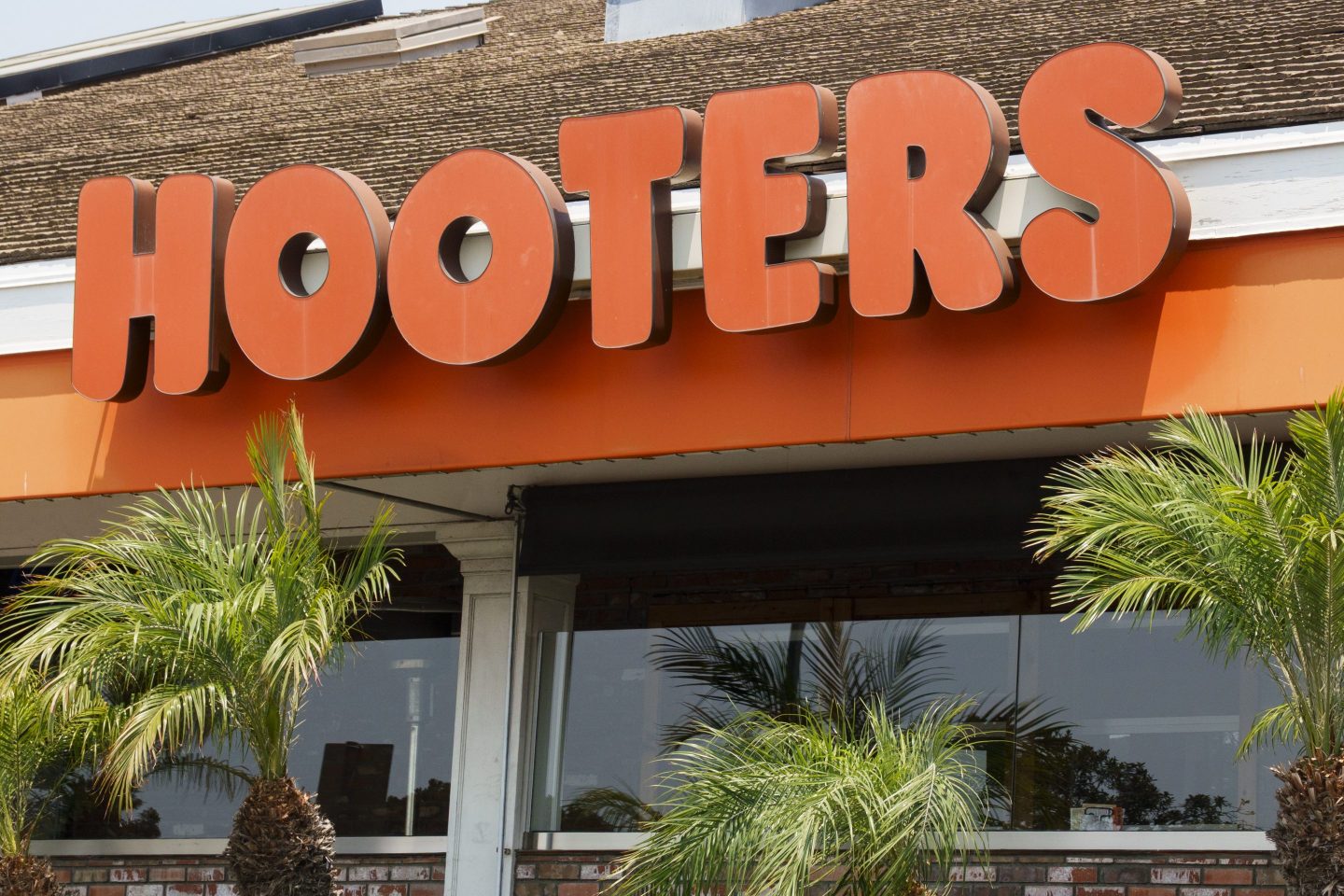Neil Kiefer has fond memories of the original Hooters restaurant he cofounded in 1983 in Clearwater, Florida. Despite naming his chain with a heavy dose of innuendo, he and his partners intended it as a beachside dining spot for young people and families.
“It started as a place five miles from the beach,” Kiefer, now the CEO of Hooters Inc., told Fortune. “You came in from the beach, could throw some coveralls on, shorts…and it was a hangout.”
But recently, the restaurant chain known more for its scantily clad servers than perhaps its wings and beer, strayed too far from its roots, according to Kiefer. He blamed the chain’s private equity ownership, particularly over the last five or six years, though the company has passed through several hands over the past few decades. That included the likes of businessman Hugh Connerty, who bought the rights to Hooters from the owners a year after its founding with the hopes of national expansion, followed by Robert Brooks and a group of investors at what is now Hooters of America, Inc., who bought the company from Connerty. In 2011, private equity firms H.I.G. Capital and KarpReilly helped finance Chanticleer Holdings LLC’s acquisition of Hooters, a North Carolina-based development company. In 2019, Hooters was sold to private equity firms Nord Bay Capital and TriArtisan Capital Advisors.

In March, Hooters for America, the private equity-controlled entity that controlled the restaurant chain, filed for Chapter 11 bankruptcy, giving Kiefer, his co-founders, and franchises a way to buy back more than 100 locations. For about two years, Kiefer and his business partners at Hooters Inc. had galvanized his franchises’ discontent with the company’s direction under private equity ownership.
“It’s a beach-theme restaurant, not a sexualized one,” Kiefer said. “So I think they went too far down the road of making it more like a little boys club hangout, and they therefore alienated the women and the families we have.”
Kiefer will now be able to do something about the restaurant’s risque reputation: Hooters Inc. announced earlier this month that it finalized the acquisition of Hooters for America. Hooters, alongside partner Hoot Owl Restaurants LLC, will own about 140 of the 198 Hooters restaurants in the U.S.
The CEO pledged to return the chain to its beachy roots, insisting Hooters is a family-friendly restaurant with beachy vibes. That means not just an updated menu with hand-breaded wings, sauces, and salads with housemade dressings, but also uniforms for servers that resemble Hooters’ 1980s jogging-style shorts.
In the first week after the sale, Kiefer said he onboarded 4,600 new employees to staff his restaurants. Hooters’ servers are nearly exclusively women, taking advantage of a legal loophole called bona fide occupational qualification, which allows a business to refuse to hire someone based on national origin or sex if a particular quality of someone’s identity is “reasonably necessary to the normal operation of that particular business or enterprise.” A 1997 lawsuit filed by men denied jobs at the restaurant was settled and required Hooters to make some back-of-house positions available to men.
Casual dining’s private equity crisis
Hooters’ comeback won’t be an easy one. It’s looking to make its refreshed debut at a time when consumers are anxious about the economy and have plenty of other casual restaurant options to choose from, according to Neil Saunders, managing director of GlobalData. Brands like TGIFridays and Red Lobster have similarly looked to reinvent themselves and compete with the likes of Chili’s, which has soared thanks to a recipe of operational efficiency, as well as a flair for online virality and promise of value for consumers more sensitive to menu prices.
“There’s volume shrink in the restaurant industry,” Saunders told Fortune. “At the moment, there’s very high costs and cost increases, and really, because people are dining out less often and they’re buying less, it’s really a big battle for market share.”
What many of these resurrected casual dining concepts have in common is not just burgers, wings, and seafood, but beleaguered histories with private equity. According to Pitchbook, 21 restaurant or bar chains filed for bankruptcy in 2024, 10 of which had private equity backing. Those 10 included both Red Lobster and TGIFridays.
Saunders said private equity is to blame for these restaurant chains’ woes “very, very often.” It’s is an appealing option for business owners looking to sell and get a bang for their buck, as private equity firms are willing to give up lots of cash—most of which is leverage—and in return, try to flip the business, which can look like carving up its assets or selling its real estate to other investors, only to lease it back.
“Private equity tends to take quite a short-term view of the businesses it owns, and very much is about profit maximization in the short term, and it isn’t really about long term brand health,” Saunders said.
Kiefer’s gripe with Hooters’ private equity ownership was the choices they were making about the business, such as in 2021, when Hooters for America introduced skimpier shorts as part of its uniform. About 160 company-owned stores adopted the new look, while the couple of dozen franchise locations under Hooters Inc.’s ownership did not.
The CEO said he could see the difference in customer-base demographics in those stores, with franchise locations he owned seeing women and children make up between high-20s % to low-40% of its customers. In stores he is acquiring, customers were between 5% and 18% women and children.
“When you just appeal to just men or just women, you’re cutting the market in half totally,” he said.
The future of Hooters
According to Saunders, one major factor in Hooters’ future success will be its ability to overcome its reputation as a so-called “breastaurant.”
“One of the key questions is, Is that what consumers actually want? Is it still relevant today?” he said. “It’s a lot more of a love-it, hate-it-type proposition than it used to be. It’s polarizing.”
But with a bid to appeal to more women and families, Hooters risks failing to differentiate itself from the dozens of other casual dining chains also priding themselves on being family-friendly, according to Saunders. And that’s on top of restaurants competing with consumers’ desires to dine out less and cook more.
Kiefer is concerned with keeping the brand alive in the long term. He said he’s not interested in the private equity model of prioritizing profit, but rather supporting franchise locations, some of which have been in business for 40 years. And there are no plans for the company to change hands again anytime soon.
“Our plan is to never sell it,” Kiefer said. “Our plan is to have the next generation of Hooters operators take over.”
That doesn’t mean striking a chord with diners is any less important.
“It’s still a heavy climb,” Kiefer said. “We’re all consumers. When you go out to eat, you have a bad experience, you simply don’t go back. We’ve got a lot of work to do to straighten things out and then to win the customers back and get new customers, too.”













